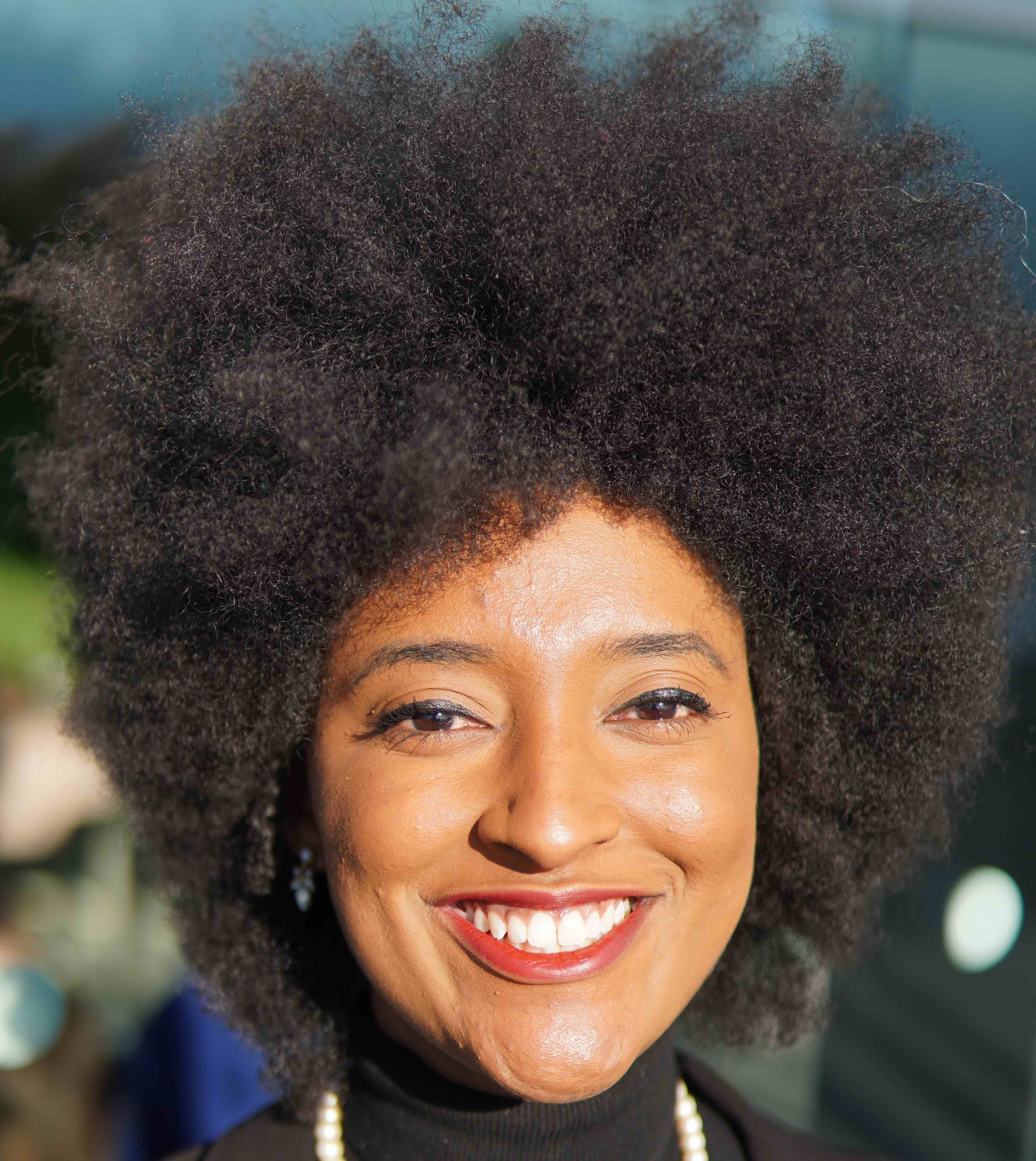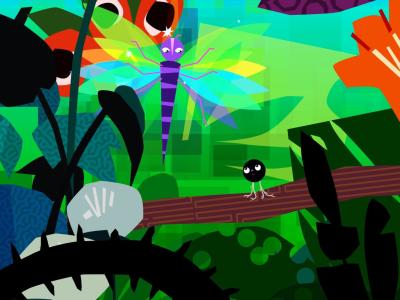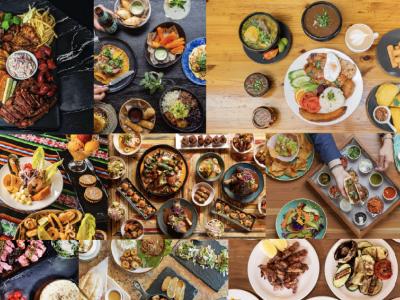My earliest memory is being so excited about going out with my grandma to buy trainers, a few months before she passed away. I grew up in Sao Paulo, enjoying my family and friends, enjoying the freedom of just being able to dream, but also preparing to deal with the racism to come.
From my mum I learnt the art of articulation. From my dad I inherited my fearlessness.
My favourite proverb is ‘I am because we are together’ (Ubuntu). As an African born in Brazil, I am alive only because we found a way to survive as the community.
I give thanks to inspirational Afro-Brazilians, such as Zumbi dos Palmares, Carolina Maria de Jesus, Abdias do Nascimento, Frei David, Marielle Franco, Lélia Gonzales and many more, who look like me and are free, despite the impact of slavery, which continues to manifest itself every day. Today in Brazil, a black young person is killed every 23 minutes.
The most useful piece of advice I’ve been given is ‘the no is always expected, so go try to get the yes.’ You will only know if you try. My mum said this to me when I started to apply for jobs around the age of 16 back home in Brazil.
I often watched the movie “Facing the Giant” when I was a young pastor. It’s about the power of working as a team, believing in ourselves and our spirituality.
The people who inspired me, apart from my parents, include Francisco Jaime de Assis, my professor at the University of Missouri and Clenora F. Hudson-Weems, who taught me “African Womanism”, acknowledging the rights of women of African descent as individuals and for her family (the black community) and Dr. Molefi Kete Asante, Professor at Temple University, who, with his book Afrocentricity: The Theory of Social Change gave me a deep understanding of my identity as an African woman born in Brazil.

The UK was less racist than I thought it would be. When I was young, I thought Britain was always cold and raining with only white people, like in Harry Potter. When I came to London for the first time I realised how multicultural the city was and decided that it would be a great experience to live there for a while. People from different backgrounds have opportunities to make things happen.
I never imagined that, being in Europe, I’d be closer than ever to Africa. In London I had the chance to meet African people from all over the continent. I learnt a lot about myself. I even learnt about a Brazilian community in Ghana called Tabom people and a Brazilian community in Nigeria, both communities of former slave returnees.
I struggled with…learning the language, working more than 10 hours hours a day, lockdown, the lack of family support, visa issues. But mostly I struggled with how Brazilian women are perceived, sometimes in a very sexualised way, reducing us only for a body and not acknowledging our intellectuality.
I’ve overcome inequality, racism and poverty by reaching out to mentors. They provided guidance and support and helped me start bridging these gaps slowly. I recognised early that education was my ticket to a better future and pursued scholarships and full-time jobs to fund my studies. With each step, I gained a deeper appreciation for my family's sacrifices, which motivated me to work diligently to secure a more stable financial foundation. This experience instilled in me a profound sense of responsibility and the importance of helping others who face similar challenges. I believe you have to be determined and keep placing yourself outside of your comfort zone, exposing yourself to new knowledge to keep progressing each day.
My biggest breakthrough was when I represented my country at the United Nations in New York and discuss sustainable development in Brazil with world leaders.
I’d tell my younger self: Don’t worry if you don’t fit in. Keep your spirituality, but don’t spend all your time going to church; instead, learn how to play an instrument or any other skill you can use when you are an adult and, if possible, something that will help you to make money.
Once I slept for 4 hours in the tube because I was so tired that I missed my station, and I ended up going and coming back on the train while I slept.
Your most memorable encounter in London a guy from France took me for dinner on our first date at The Shard, one of the world's most famous and tallest restaurants
The kindest thing a stranger did for me in London was a woman opened her house for me to stay in while I couldn’t afford a room, helping me not to be homeless
My perfect Sunday in London...On a sunny day in the morning, I like to go to the service in the church, have ice cream, come back home, buy flowers for my house and cook dinner while I dance, sing, and call my parents in Brazil.
My favourite places in London are… Frigideira (Brazilian restaurant) and Asafo (Ghanian Restaurant) London Bridge and my secret place in Finsbury Park (a little hidden hill)
When I miss Brazil I think about the positive way we see life, even on the challenges, we find a way to enjoy ourselves. We think about the family community. Wwe love hard and with no fear. I miss it. I miss being able to be myself without being so different from the majority. There’s no PDA (public display of affection) because it’s part of us, and I love that. I go out to a party where I know my favourite DJs will play the musical genres I love the most. It makes me feel alive and reminds me that the happiness I felt dancing will not last forever. When I miss Brazil, I remember who I am, where I’m going, and why. Then, it is usually an excellent way to bring me back to balance. I also go to a park to walk alone, have some fresh air and listen to the trees.
My favourite word in English…Unapologetically
The word you most dislike in English…Theatre. It is tough to pronounce.
@gabvallim @bailefunkculture















